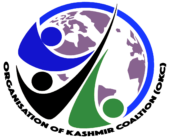
UN Experts Call for Urgent Action to Remedy “Alarming” Human Rights Situation in Jammu and Kashmir
Courtesy: OHCHR Website; News & Events – Link to Webpage below.
GENEVA (4 August 2020) – A year after India revoked the special status of Jammu and Kashmir, UN human rights experts* today called on India and the international community to take urgent action to address the alarming human rights situation in the territory.
“Urgent action is needed,” the experts said. “If India will not take any genuine and immediate steps to resolve the situation, meet their obligations to investigate historic and recent cases of human rights violations and prevent future violations, then the international community should step up.”
Since the Indian Parliament revoked the constitutionally mandated status of the state of Jammu and Kashmir on 5 August 2019, “the human rights situation in Jammu and Kashmir has been in free fall,” the experts said. “We are particularly concerned that during the COVID-19 pandemic, many protestors are still in detention and Internet restrictions remain in place.”
It has been almost a year since several UN experts wrote to the Government and publicly called on India to end the crackdown on freedom of expression, access to information and peaceful protests which followed the 05 August 2019 announcement. The experts have also raised concerns with the Indian government about alleged arbitrary detention and torture and ill-treatment to which the Government recently replied, as well as the criminalization of journalists covering the situation and the detention and deteriorating health of a high profile human rights lawyer.
“We have yet to receive any reply to three of the four letters,” the experts said.
The October 2019 closure of the Jammu and Kashmir State Human Rights Commission, which had been one of the few ways victims of human rights violations could seek remedy, is particularly concerning. Furthermore, no information was provided to the public about what would happen to the ongoing cases the body had been investigating, including hundreds of suspected enforced disappearances dating from as far back as 1989. Allegations regarding thousands of unmarked and some mass graves sites have also not yet been properly investigated.
“Decades on, families are still waiting in anguish and now there is a stream of new alleged rights violations,” the experts said. “With no State Human Rights Commission and internet restrictions, the avenues for reporting are further reduced.”
In 2011, India extended an open invitation to Special Rapporteurs to visit, but has several requests pending. “We call on India to schedule pending visits as a matter of urgency, particularly of the experts dealing with torture and disappearances,” they said.
ENDS
The experts: Agnès Callamard, Special Rapporteur on extrajudicial, summary or arbitrary executions; Ahmed Shaheed, Special Rapporteur on freedom of religion or belief; Clément Nyaletsossi Voule, Special Rapporteur on Rights to Freedom of Peaceful Assembly and of Association;Irene Khan, Special Rapporteur on the promotion and protection of the right to freedom of opinion and expression;Fabian Salvioli, Special Rapporteur on the promotion of truth, justice, reparation and guarantees of non-recurrence; Fionnuala D. Ní Aoláin, Special Rapporteur on the promotion and protection of human rights and fundamental freedoms while countering terrorism; Leigh Toomey(Chair-Rapporteur), Elina Steinerte (Vice-Chair), José Guevara Bermúdez, Seong-Phil Hong, Sètondji Adjovi, Working Group on Arbitrary Detention; Luciano Hazan (Chair), Tae-Ung Baik (Vice Chair), Bernard Duhaime, Houria Es-Slami, and Henrikas Mickevičius, Working Group on Enforced or Involuntary Disappearances; Mary Lawlor, Special Rapporteur on the situation of human rights defenders; Nils Melzer, Special Rapporteur on torture and other cruel, inhuman or degrading treatment or punishment;
The Special Rapporteurs and Working Groups are part of what is known as the Special Procedures of the Human Rights Council. Special Procedures, the largest body of independent experts in the UN Human Rights system, is the general name of the Council’s independent fact-finding and monitoring mechanisms that address either specific country situations or thematic issues in all parts of the world. Special Procedures’ experts work on a voluntary basis; they are not UN staff and do not receive a salary for their work. They are independent from any government or organization and serve in their individual capacity.
For more information and media requests, please contact: Mr. Vladimir Rakocevic (+41 22 92 89202/ vrakocevic@ohchr.org)
For media enquiries regarding other UN independent experts, please contact Ms Kitty McKinsey (kmckinsey@ohchr.org)
Follow news related to the UN’s independent human rights experts on Twitter@UN_SPExperts.
Concerned about the world we live in?
Then STAND UP for someone’s rights today.
#Standup4humanrights
and visit the web page at http://www.standup4humanrights.org
